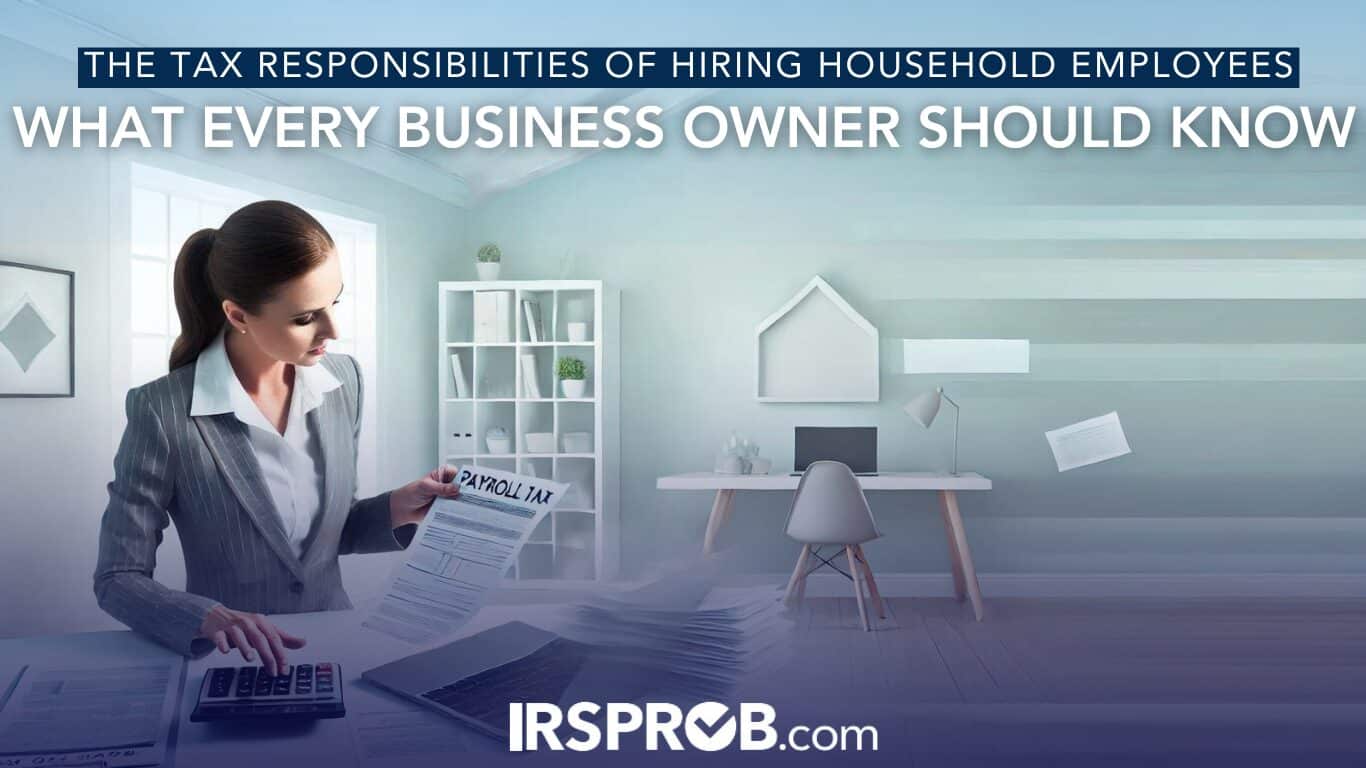
Hiring household employees such as nannies, housekeepers, or caregivers can significantly ease personal and family responsibilities, but it also brings tax obligations that business owners need to understand. Just like running a business, hiring household help comes with financial and tax responsibilities that, if not properly managed, can lead to complications with the IRS.
What is a Household Employee?
A household employee is someone you hire to work in or around your home. You control not only what work is done but also how it is completed. This classification applies regardless of whether the worker is full-time or part-time, paid hourly or per job, or hired through an agency. Some common examples of household employees include:
- Babysitters over 18
- Housekeepers and domestic workers
- Nannies and private nurses
- Yard workers and gardeners
If the worker provides their own tools and services to the general public, they may be classified as an independent contractor, and not a household employee, meaning you may not be responsible for the same tax obligations.
Key Tax Obligations for Household Employers
When you hire a household employee, you take on several tax responsibilities similar to those you might face as a business owner.
- Social Security and Medicare Taxes (FICA): If you pay your household employee $2,700 or more in cash wages during 2024, both you and your employee must pay Social Security and Medicare taxes. The combined tax rate is 7.65% (6.2% for Social Security and 1.45% for Medicare). You will need to withhold your employee’s share from their wages and remit both your share and theirs.
- Federal Unemployment Tax (FUTA): If you pay your household employees a total of $1,000 or more in any calendar quarter during 2023 or 2024, you are required to pay FUTA tax. FUTA tax is 6% of the first $7,000 of wages paid to each employee, though most employers can receive a credit of up to 5.4%, resulting in a net tax rate of 0.6%. Importantly, this tax is paid from your own funds, not withheld from the employee’s wages.
- State Employment Taxes: In addition to federal taxes, your state may require you to pay state unemployment taxes or carry workers’ compensation insurance for your household employees. Be sure to check your state’s specific requirements to ensure compliance.
- Form W-2 and Schedule H Filing: If you pay your household employee Social Security or Medicare wages of $2,700 or more, you are required to file a Form W-2 for the employee and report the taxes on Schedule H (Form 1040) with your individual tax return. You must also obtain an Employer Identification Number (EIN) to report these taxes.
- Federal Income Tax Withholding (Optional): While you are not required to withhold federal income tax from your household employee’s wages, you may do so if they request it and you agree. If you choose to withhold federal income tax, you must use Form W-4 to determine the correct withholding amount.
Exceptions and Special Situations
Some wages are not subject to FICA or FUTA taxes. These include wages paid to:
- Your spouse
- Your child under 21
- Your parent (with certain exceptions)
- Household employees under 18, unless their main occupation is household work
Understanding these exceptions can help you avoid unnecessary tax filings.
Why Tax Compliance Matters
As a business owner, you are no stranger to the complexities of tax compliance. Similarly, when you hire household employees, failing to properly report and pay employment taxes can lead to penalties, interest, and unwanted attention from the IRS. Keeping accurate records, filing the required forms, and understanding your tax obligations can save you from these headaches.
Planning Ahead
If you are considering hiring household help, it’s wise to plan ahead for the potential tax implications. Speak with your tax advisor to ensure you are in compliance and taking advantage of any opportunities to streamline your tax payments.
In conclusion, managing the tax responsibilities of household employees may seem daunting, but with proper planning and knowledge, you can avoid the pitfalls. As always, consult your tax professional for advice tailored to your specific situation, and ensure that your household employees are treated with the same level of tax compliance as your business employees.
For more detailed information on your household tax responsibilities, including FICA, FUTA, and more, feel free to reach out to IRSProb.com for expert advice.








